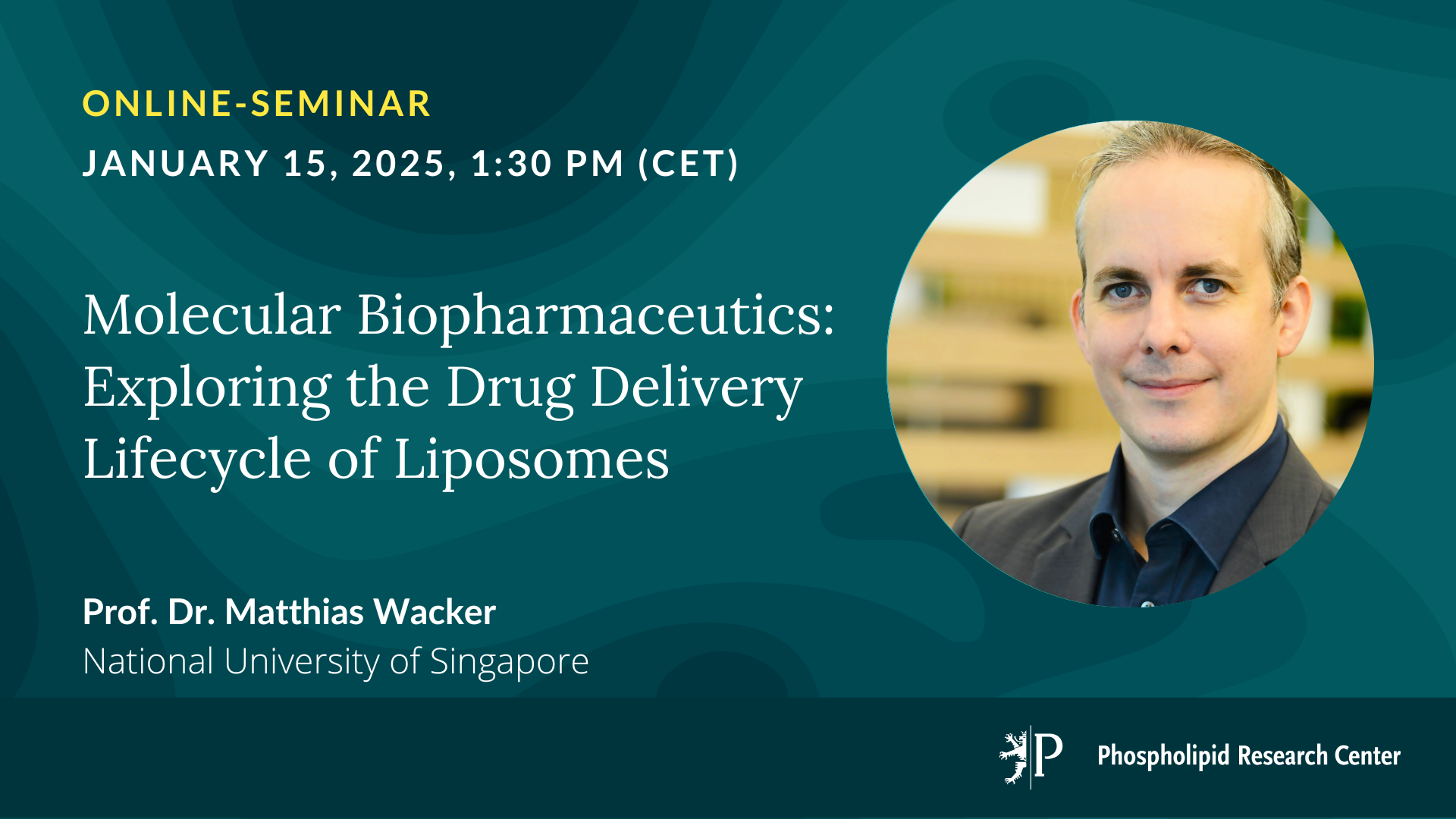Webinar January 2025 – Prof. Wacker
On Wednesday, January 15, 2025, an online seminar on "Molecular Biopharmaceutics: Exploring the Drug Delivery Lifecycle of Liposomes" was held at 1.30 p.m. (CET) / 8.30 p.m. (Singapore time).

The speaker was Professor Dr. Matthias Wacker from the National University of Singapore.
If you are interested in the slides of the presentation, please get in touch with us!
Abstract
Liposomes are at the forefront of nanotechnology-enabled drug delivery, offering unique advantages for treating cancer and other diseases. In this talk, I will trace the complete lifecycle of liposomal formulations, from initial design and in vitro testing to clinical application. Central to this journey is the development of advanced biopredictive release assays, which translate complex biological processes into clinically meaningful kinetic parameters.
Focusing on commercially available liposomal drugs such as Doxil® and Nanocort®, I will demonstrate how integrating preclinical and clinical data informs accurate performance predictions and establishes robust in vitro-in vivo correlations (IVIVC). With these correlations in hand, we can move beyond mere particle size specifications and towards performance-driven goals, defining a "performance safe space" that links physicochemical attributes directly to target clinical endpoints such as AUC and Cmax.
To illustrate this workflow, I will present a full cycle of model development, followed by rapid prototyping of optimized liposomal formulations using microfluidics, and conclude with a head-to-head performance comparison of two candidate formulations using biopredictive assays. Attendees will come away with a comprehensive understanding of the pharmacokinetics of nanomedicines, the pivotal role of refined analytical tools, and the value of IVIVC in streamlining the design of complex liposomal dosage forms. Ultimately, this talk will highlight how these approaches shape the future of liposomal drug delivery, advancing us closer to truly personalized and predictive nanomedicines.
